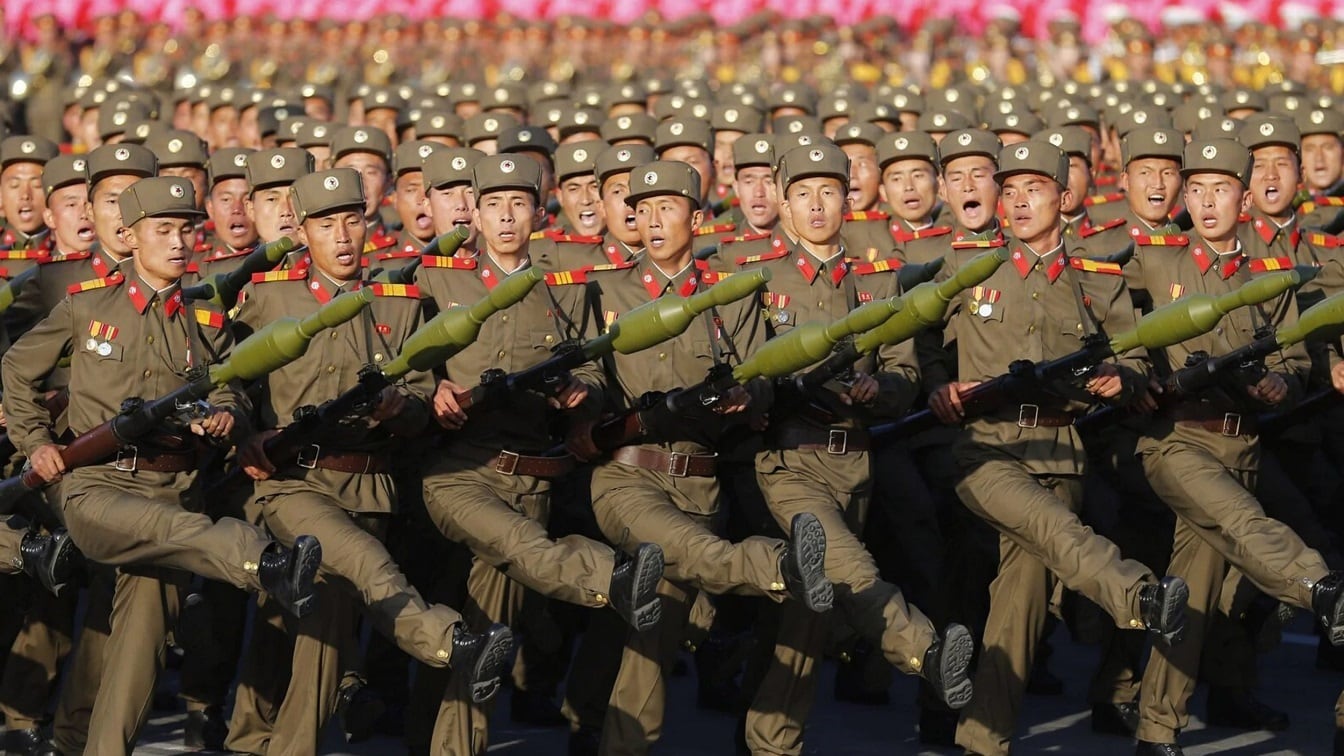Russia’s full-scale invasion of Ukraine and the overall ten-year war is quickly spiraling into an East vs. West dispute with various political blocs and growing alliances supporting a particular party in the conflict.
NATO is militarily backing Ukraine, as the collective security alliance was created to counter Russian expansion. China and Iran, both of whom wish to counter Western influence, are politically and militarily backing the invading Russian Federation, respectively.
Two other parties supporting Ukraine and Russia, respectively, are South Korea and North Korea, who are in a heightened state of tensions.
A war that never indeed ended, the more significant Korean conflict is increasingly becoming intertwined with Russia’s invasion of Ukraine, expanding tensions on a global scale.
South Korea’s Support for Ukraine
Ukraine is currently a country facing Russia with renewed imperialistic ambitions backed by other countries that look to expand territory or wipe out their rivals, such as Iran and North Korea, with the latter being the catalyst of South Korean support for Kyiv.
South Korea, a country that has a dark history of various autocrats and corruption, transformed their country into a democratic model—akin to what Ukraine hopes to achieve.
Ultimately fighting back against multiple corrupt heads of state, Seoul has become an economic, technological, and military powerhouse.
Korea became partitioned in part due to Washington and Moscow, in which the latter and its tyrant, Josef Stalin, deported tens of thousands of Koreans. Due to Russia’s support for North Korea, South Korea aligns with the West, especially Ukraine.
During the Ukraine war, Seoul allocated $150 million in humanitarian aid to Kyiv in 2023 and $394 million in 2024. When Western military aid came in slow in 2023, South Korea stepped up immensely and supplied Ukraine with 330,000 shells, eclipsing Europe’s combined artillery allocation that year.
North Korea’s Support for Russia in Ukraine
North Korea, initially having a higher quality of life than its southern counterpart, quickly reverted to a regressive totalitarian hermit kingdom. The Kim dynasty has controlled the country since its inception, largely thanks to being propped up by China, the Soviet Union, and modern-day Russia.
Considering the United States to be their greatest adversary, North Korea’s foreign policies include backing any state in conflict with America, regardless of their ideology.
In late 2022, the White House announced that the Wagner Group was procuring shells from North Korea, as the mercenary organization was in conflict with the Russian Ministry of Defense over military support. North Korea would deny the report, but Pyongyang has been more open to military support for Moscow over the past few months.
In September 2023, North Korea would become more open about military support to Russia after a summit between Kim Jong Un and Vladimir Putin. Reportedly, upwards of one million artillery shells have been allocated from North Korea to Russia.
Recently it was reported that 7,000 containers of military equipment from North Korea to Russia are currently being transported to the front.
Though having a high dud rate, the North Korean artillery shells give Russian forces even more chances to maneuver under fire and mask tunnel building, as seen in the Avdiivka offensive.
How the War Intertwines Between Seoul and Pyongyang
Already holding heightened rhetoric towards Seoul, Pyongyang looks to gain data on their current artillery stocks to see if they will combat if a continuation war were to break out on the Korean Peninsula. The North also wants to send a message about its ultranationalist rhetoric on defeating the South Korean government and fighting against any country affiliated with America.
South Korea, seeing the turbulence in US politics, is preparing for contingencies amidst growing tensions in the region and beyond. Seoul recognizes Kyiv’s fight against Moscow as akin to its battle against the North.
South Korea is increasingly becoming a global player through military exports, particularly finalizing major contracts with countries such as Poland, Turkey, India, and Australia.
Production towards both warring parties in Ukraine is instrumental for Seoul and Pyongyang as the South wishes to maintain peace through strength. In contrast, the North wants to remain relevant on the world stage through belligerence and provocations.
South Korea and North Korea now have foreign policies intertwined in the Russian invasion of Ukraine as both East Asian countries want to show each other they remain undeterred towards the other, and the overall war shows how quickly a regional conflict can have global implications.
About the Author: Julian McBride
Julian McBride is a forensic anthropologist, SOFREP contributor, and independent journalist born in New York. He reports and documents the plight of people around the world who are affected by conflicts, rogue geopolitics, and war, and also tells the stories of war victims whose voices are never heard. Julian is the founder and director of the Reflections of War Initiative (ROW), an anthropological NGO which aims to tell the stories of the victims of war through art therapy. As a former Marine, he uses this technique not only to help heal PTSD but also to share people’s stories through art, which conveys “the message of the brutality of war better than most news organizations.”

